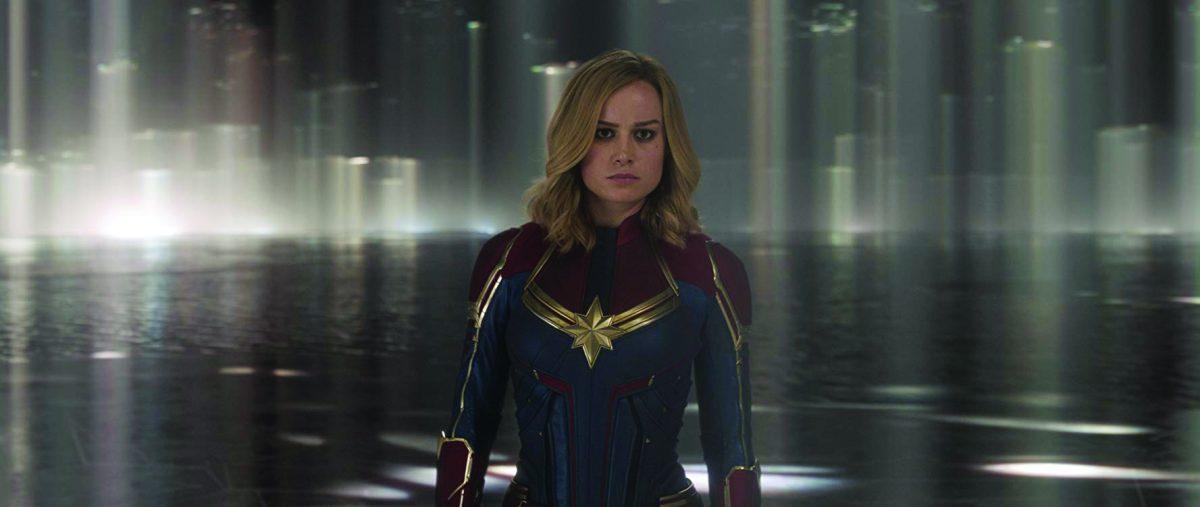Despite garnering protests from many superhero fans for being “too political,” “Captain Marvel” surpassed every expectation, earning $456 million at box offices worldwide and a not too shabby 80 percent rating on Rotten Tomatoes. The film smashed record after record, officially becoming the biggest female-led movie overseas and the biggest comic heroine-led film in the US. Though “Wonder Woman’s” Patty Jenkins still holds the record for biggest debut by a solo female director, “Captain Marvel’s” Anna Boden has had the biggest opening weekend for a female director overall. Borden directed this film with Ryan Fleck, with whom she has collaborated in the past on movies such as “Half Nelson” and “Mississippi Grind.” There is a poetic feeling that accompanies this incredible victory for Newton-born Boden, as Carol Danvers’ hometown in the comics is listed as Beverly, Massachusetts – this Waltham local is proud of her fellow Massachusetts women, real or fictional. On a humorous note, this movie also holds the record for biggest debut for a film starring a cat, a reference to the delightful Goose, an orange kitty fans have seen and cooed over in trailers.
However, not everyone is happy about this resounding success. Many fans, conservative men in particular, have been accusing Disney executives of artificially inflating numbers, since theaters in their hometowns have been “conspicuously empty.” I myself had the opposite experience; the Boston Common AMC was completely packed. The trailer for the upcoming Marvel flick “Spiderman: Far From Home” helpfully reminded audiences that “Captain Marvel” is technically a tie in to “Avengers: Infinity War.” Regardless, this film does a fabulous job of standing on its own two feet despite being clearly tied to the main Marvel Cinematic Universe (MCU) timeline. This is definitely a film you can — and should — watch if you’ve never seen a superhero movie before. Though long-time Marvel fans will notice a few significant Easter eggs and tie-ins, the main plot is entirely focused on Carol, who goes by Vers for much of the film, as she pieces together what remains of her identity from a handful of half-forgotten memories.
The star-studded cast carries the intensely emotional plot with ease and grace. Brie Larson’s performance as the eponymous Captain Marvel is compelling and nuanced, with moments of levity and clever quips balancing out more serious and poignant moments for a character regaining memories and a sense of purpose. Samuel L. Jackson (Nicholas Fury) was particularly fun to watch, as he portrayed a younger, more light-hearted and soft side to a character that fans are used to seeing with a gruff, no-nonsense attitude. Lashana Lynch (Maria Rambeau) shines in her role as a retired Air Force pilot and single mother to the adorable and clever Monica Rambeau (Akira Akbar). The supporting cast of characters as a whole was diverse, charismatic and endlessly fun to watch, but of the lot Gemma Chan (Minn-Erva) often steals the show as a cool, confident sniper on Vers’ task force. These characters are all classic features of the Ms. Marvel comics, so it will be exciting to see how they are developed further in the MCU.
Though the acting was incredible, the most amazing part of this movie was its worldbuilding and cinematography. The first shot of the movie features Vers lying wounded, bleeding blue, instantly cueing audiences to the fact that much of this film takes place in space in the heart of the Kree Empire. The setting is gorgeously laid out in meticulous detail, and you never feel as though you don’t have enough information to properly enjoy the movie, even as marvel after marvel (pun definitely intended) in this fascinating new part of the universe unveil themselves on screen. The bright, colorful cinematography certainly helps the film immerse its audience in the setting and plot, and the visual effects felt real enough to not detract from whatever scene they were a part of, from fight choreography to meetings with the Supreme Intelligence, AI leader of the Kree. Though not as unorthodox (and dare I say revolutionary) as what we saw from “Black Panther,” the film is cut seamlessly and elegantly.
A hallmark of MCU films is that they tie-in relevant political commentary to their plots. From the very start of the MCU with “Iron Man” in 2008, producers tackled the ideas of war-profiteering and the accountability that comes with privilege. Recent Marvel films have explored the effects of colonialism and historical revisionism and questions of how far of a reach a government can safely have over its citizens. “Captain Marvel” certainly follows in this tradition, though not for the reasons you may expect. The trailers certainly bank on the feminist nature of the movie (billing their main character as a “her(o),” for example), but though this piece of the film was certainly present, it was not the most compelling political aspect. If anything, scenes of clumsy harassment and hazing teasing read as “forced feminism,” and were more performative than informative. Cutting some of these scenes out and replacing them with more opportunities for Carol to stand independent from her past and her peers would have strengthened this movie’s plot (though fear not, she still gets plenty of time to shine — literally and metaphorically). Still, these moments are almost inconsequential compared to the excellence of the rest of the film, and the other political undertones are both captivating and relevant to current social justice issues.
Though not perfect, “Captain Marvel” is a brilliant addition to the Marvel canon. It is intelligent and entertaining and has definitely joined the ranks of “Black Panther” and “Thor: Ragnarok” as a Marvel must-see. Keep an eye out for a Stan Lee cameo, as well as two extra scenes: one mid-credits and one post-credits. You won’t want to miss a minute.



